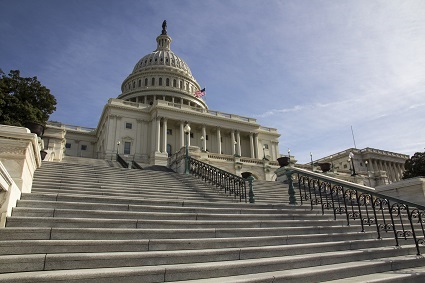
Winter 2021
Translating Research to Policy: A Q&A with SBM's Health Policy Ambassadors
Joanna Buscemi, PhD✉; Health Policy Council Chair

Our Health Policy Ambassadors strive to close research to policy translation gaps through regular contact and relationship building with legislative staff. Our key priority areas aim to educate lawmakers about 1) evidence-based ways to ensure children from all income levels have access to healthy foods; 2) evidence-based ways to best manage pain and combat opioid misuse; and 3) the unique healthcare needs of rural populations and evidence-based strategies to improve their health outcomes and quality of life. There are currently 28 Ambassadors building relationships with legislative staff across the country. We spoke with Heather Hardin, PhD; Hallie Espel-Huynh, PhD; Betsy Seng, PhD; Dori Pekmezi, PhD; and Thelma Mielenz, PhD about challenges and successes in the Health Policy Ambassador program and the skills they have built as policy advocates.
For those not familiar with the Health Policy Ambassador Program, how would you describe its purpose and function?
Dr. Hardin: The purpose of the Health Policy Ambassador program is to get evidence-based health information to legislators who have the power to influence national health policy. This is done by building a relationship with the legislator’s health policy staff, finding out what is important to the legislator, and sharing my expertise with them.
Dr. Espel-Huynh: Our purpose is to serve as a reliable and informative resource to policymakers, specifically focusing on topics that are under our area of expertise in behavioral medicine. The goal is to help policymakers support, prioritize, and craft legislation that is informed by empirical evidence and prioritizes the needs of our patients.
Dr. Seng: The purpose is to use the science of behavioral medicine to inform national decision-makers as they grapple with how to best address public health challenges.
What are the most challenging parts of building relationships with legislative staffers?
Dr. Pekmezi: Legislative staffers have busy schedules, which can change on a dime and make building relationships challenging.
Dr. Espel-Huynh: The most challenging part for me has been learning the language of policy-making. Scientists and practitioners have certain priorities that are driven by population needs and funding priorities. Policymakers often have complementary interests, but they might have different policy-focused motivations for focusing on them. Learning how to speak about behavioral medicine in a way that is plain, simple, and compelling to policymakers has been the biggest challenge for me, and one I'm still learning.
What do you think has been the most meaningful outcome of your conversations with policymakers/staff?
Dr. Hardin: The most meaningful outcome of my conversations with the legislative staffer occurred early on in my relationship with them. The legislative staffer asked for some evidence about telehealth, which I found and shared with them. However, they did not seem receptive to my recommendation, and I felt a bit disappointed. A month or so later, the legislator’s e-newsletter described a new telehealth bill they had introduced, and it included my recommendation. It was satisfying to see my efforts pay off.
Dr. Seng: I really don't think the staffers I have spoken with knew how much science already exists to inform policy. The idea that there is a whole field of people who study behavioral issues in public health was new to them. I think they definitely see us as a resource.
Why should other members become an Ambassador?
Dr. Mielenz: It is a rich learning experience to see that our published work can make a real difference.
Dr. Hardin: ​​SBM members have a wealth of expertise to share with others—the Health Policy Ambassador program is a way to influence the implementation of evidence-based recommendations into national policy, which can influence practice and people on a grand scale.
Dr. Pekmezi: Becoming an ambassador provides the opportunity to learn more the health policy process, practice science communication and meet/interact with the people who are in “the room where it happens."
Dr. Seng: It is gratifying to build these relationships and see your work being translated in the policy arena.
What skills have you learned as an Ambassador that have improved other areas of your career?
Dr. Hardin: The Health Policy Ambassador program has helped me to think about the big picture of rural health, how my work fits in, and my role in making positive changes in health care.
Dr. Espel-Huynh: I have learned so much about the policies that support (or get in the way of) nutrition and healthy lifestyle behaviors at the population level--for more than I'd ever learn in doing research alone. The work I do as an Ambassador helps me to think big-picture about the research questions I'm asking, particularly how the results will fit into the broader context of our legislative and policy environment.